-
About
- About Listly
- Community & Support
- Howto
- Chrome Extension
- Bookmarklet
- WordPress Plugin
- Listly Premium
- Privacy
- Terms
- DMCA Copyright
- © 2010-2025 Boomy Labs
 Jodie Taylor
Jodie Taylor
Listly by Jodie Taylor
A list of more than 100 peer-reviewed open access journals that publish scholarly research and criticism in the arts and humanities. Specialist topic areas include cinema, film and television, music and sound, interactive media and games, new media, digital and networked media, electronic literature and creative writing, audiences and participatory culture, art and aesthetics, critical cultural theory, digital humanities, philosophy, popular culture, visual and performing arts, sociology and communications.
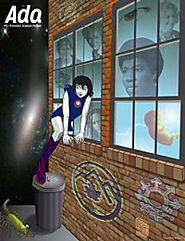
Ada intends to be accessible at a number of different levels. First, we want to make feminist research on gender, media, and technology available to a broad audience – an audience that may have access to the internet, but not to university libraries or traditional peer-reviewed journals. Second, we want to encourage contributions that are accessible to a diverse and fundamentally interdisciplinary readership. You should thus assume that readers are interested in your subject, but may not have specialized knowledge, so be aware of how you use jargon. You may want to “translate” or explain any specialized disciplinary terms in an end note. Editors will be paying close attention to issues relating to audience and are open to discussion on these matters.

Cultural Studies Review is a peer-reviewed journal devoted to the publication and circulation of quality thinking in cultural studies—in particular work that draws out new kinds of politics, as they emerge in diverse sites. We are interested in writing that shapes new relationships between social groups, cultural practices and forms of knowledge and which provides some account of the questions motivating its production. We welcome work from any discipline that meets these aims. Aware that new thinking in cultural studies may produce a new poetics we have a dedicated new writing section to encourage the publication of works of critical innovation, political intervention and creative textuality.
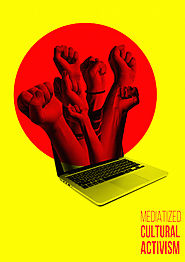
The journal seeks to create an international and transdisciplinary forum for the investigation of user-generated production and user-driven cultural participation across a variety of social fields and participatory platforms, e.g. urban spaces, aesthetic co-productions and online environments.
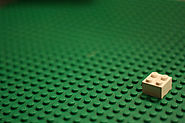
M/C Journal was founded (as "M/C - A Journal of Media and Culture") in 1998 as a place of public intellectualism analysing and critiquing the meeting of media and culture. M/C Journal is a fully blind, peer-reviewed academic journal, but is also open to submissions and responses from anyone on the Internet. We take seriously the need to move ideas outward, so that our cultural debates may have some resonance with wider political and cultural interests. Each issue is organised around a one word theme (see our past issues), and is edited by one or two guest editors with a particular interest in that theme. Each issue has a feature article which engages with the theme in some detail, followed by several shorter articles.
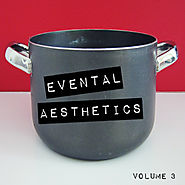
Evental Aesthetics is an international, peer reviewed journal dedicated to philosophical perspectives on aesthetic practices and experiences. Publishing about three issues a year, the journal is devoted to philosophical questions concerning every form of art as well as aesthetic matters from beyond the art world. We welcome perspectives from every philosophical tradition, experimental and creative approaches, and authors from every discipline.
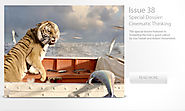
A Peer-Reviewed Journal of Screen History, Theory & Criticism. The ARC-ERA ranking of international scholarly journals has ranked Screening The Past A* in the categories of Historical Studies and Film, Television and Media Studies.

The Fibreculture Journal is a peer reviewed international journal, first published in 2003 to explore issues and ideas within the Fibreculture network. The Journal now serves wider social formations across the international community. We work with those thinking critically about, and working with, contemporary digital and networked media.
The Fibreculture Journal has an international Editorial Board and Committee. In 2009 the Journal became a part of the Open Humanities Press , a key initiative in the development of the Open Access journal community. The journal encourages critical and speculative interventions in discussions concerning a wide range of topics of interest. These include the social and cultural contexts, philosophy and politics of contemporary media technologies and events. We have a special emphasis on the ongoing social, technical and conceptual transitions involved.
Welcome to Sensate, a peer-reviewed, open-access, media-based journal for the creation, presentation, and critique of innovative projects in the arts, humanities, and sciences.
Our mission is to provide a scholarly and artistic forum for experiments in critical media practices that expand academic discourse by taking us beyond the margins of the printed page. Fundamental to this expansion is a re-imagining of what constitutes a work of scholarship or art. To that end, Sensate accepts and encourages non-traditional submissions such as audiovisual ethnographic research, multimedia mash-ups, experiments in media archaeology, time-based media, participatory media projects, or digitized collections of archival media, artifacts, or maps. Sensate accepts submissions of finished projects, proposals, and reviews of works (monographs, films, exhibitions, etc).

Transformative Works and Cultures is an international, peer-reviewed journal published by the Organization for Transformative Works. TWC publishes articles about transformative works, broadly conceived; articles about media studies; and articles about the fan community.
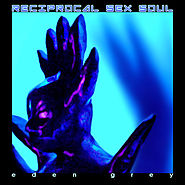
Reconstruction is an innovative culture studies journal dedicated to fostering an intellectual community composed of scholars and their audience, granting them all the ability to share thoughts and opinions on the most important and influential work in contemporary interdisciplinary studies.
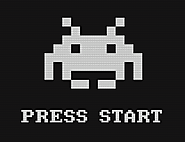
The journal welcomes submissions from undergraduate and postgraduate students (and from those who have graduated within the last year), from any discipline and from any higher education institution. This policy acknowledges the interdisciplinary and multidisciplinary nature of game studies, and the growing international interest in this area. It is also important to note that, in addition to welcoming submissions from students on game design and development courses, we are interested in any academic work that relates to video games. Increasingly, students from more established disciplines (including, but not limited to, Psychology, Philosophy, Sociology, Film and Television, Literature, History, Computing Science and History of Art) elect to write essays and dissertations on a game-related topic that intersects with their primary discipline: Press Start is an ideal venue for the publication of such work.
![Journal of Media Critiques [JMC]](http://media.list.ly/production/214643/1440099/1440099-journal-of-media-critiques-jmc_185px.png?ver=5934510828)
JMC, is an international peer-reviewed publication in which various critical approaches on media and mass communication come together plus developments in cultural, social and political sphere are discussed. As an attempt to keep up Media Critics study online, -which is a book published once a year for a long time as a meeting point of articles on certain issues which are produced by international academics- is a platform on which developments regarding on informatics, media and mass communication issues are discussed. Via this platform, academic studies, -prepared by scholars from social sciences, information and informatics, media and communication field, on media and communication issues which have profound impacts on socialization- will be shared with international academic community after peer-review of academic board of JMC. The goal of JMC is to constitute a qualified and continual platform for sharing studies of academicians, researchers and practitioners.
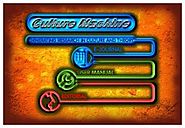
Culture Machine is an international open-access journal of culture and theory, founded in 1999. Its aim is to be to cultural studies and cultural theory what 'fundamental research' is to the natural sciences: open-ended, non-goal orientated, exploratory and experimental. All contributions to the journal are peer-reviewed.

The Journal of e-Media Studies, ISSN 1938-6060, is a blind peer-reviewed, on-line journal dedicated to the scholarly study of the history and theory of electronic media, inclusive of analog television, radio, etc. plus the expansive worlds of digital media. It is an inter-disciplinary journal, with an Editorial Board that is chiefly grounded in the methodologies of the field of Film and Media Studies. We welcome submissions across the fields and methodologies that study media and media history. Our goal is to promote the academic study of electronic media, especially in light of the rise of digital media and the changes in formal and expressive capacities resulting from new configurations of electronic media forms.

is one of the first openly accessible, peer-reviewed journals on the Internet, solely devoted to the Internet. Since its start in May 1996, has published 1,517 papers in 234 issues, written by 2,089 different authors. First Monday is indexed in Communication Abstracts, Computer & Communications Security Abstracts, DoIS, eGranary Digital Library, INSPEC, Information Science & Technology Abstracts, LISA, PAIS, Scopus, and other services.
The Journal on the Art of Record Production (JARP) is an international online peer-reviewed journal promoting the interdisciplinary study of record production. The term ‘record production’ is to be interpreted in the broadest sense as the production of recorded music. JARP was founded in 2006 by Professor Simon Zagorski-Thomas and Katia Isakoff. The guest editor for the first issue was Professor Simon Frith, for the second, Professor Albin Zak. JARP has since published a total of ten issues. The journal publishes peer reviewed research papers with contributions from world-renowned industry professionals, and is run by an editorial committee, led by the joint editors-in-chief, Dr. Richard James Burgess and Katia Isakoff.

Journal of Aesthetics & Culture is an international journal that aims to develop inter-disciplinary theoretical models as applied to human science research on aesthetic questions, understood in their broadest meaning.

Our Mission - To explore the rich cultural genre of games; to give scholars a peer-reviewed forum for their ideas and theories; to provide an academic channel for the ongoing discussions on games and gaming.
Game Studies is a non-profit, open-access, crossdisciplinary journal dedicated to games research, web-published several times a year at www.gamestudies.org.
Our primary focus is aesthetic, cultural and communicative aspects of computer games, but any previously unpublished article focused on games and gaming is welcome. Proposed articles should be jargon-free, and should attempt to shed new light on games, rather than simply use games as metaphor or illustration of some other theory or phenomenon.

Audiovisual Thinking is a leading journal of academic videos about audiovisuality, communication and media. The journal is a pioneering forum where academics and educators can articulate, conceptualize and disseminate their research about audiovisuality and audiovisual culture through the medium of video.
International in scope and multidisciplinary in approach, the purpose of Audiovisual Thinking is to develop and promote academic thinking in and about all aspects of audiovisuality and audiovisual culture.
Advised by a board of leading academics and thinkers in the fields of audiovisuality, communication and the media, the journal seeks to set the standard for academic audiovisual essays now and in the future.

"In the 60s they said it was underground but it wasn't. Now nobody says anything and it really is." – Stan Brakhage
Founded in 2008, INCITE is dedicated to the discourse, culture, and community of experimental film, video, and new media. Merging print and online platforms, this hybrid journal addresses the lack of critical attention afforded film and media artists working today. In addition to scholarly articles, INCITE publishes aesthetic statements, manifestos, artist projects, multiples, archival documents, interviews, reviews, and hastily drawn plans. Stationing ourselves at the cross-flow of research, scholarship, and creation, we encourage personal writing, critical poetics, and radical approaches to film and media.

Film-Philosophy is an international, fully open access and peer-reviewed academic journal dedicated to the engagement between film studies and philosophy. Film-Philosophy considers articles on any subject relating to film and philosophy. Film-Philosophy is interested in the ways in which films develop and contribute to philosophical discussion. We particularly welcome articles that set up an active engagement between film studies and philosophy, thereby sustaining a thoughtful reevaluation of key aspects of each discipline. Founded in November 1996, Film-Philosophy is an international academic journal dedicated to philosophically reviewing film studies, philosophical aesthetics and world cinema. With over 1200 members worldwide, the email list encourages discussion of related topics. The journal is published in one rolling volume per year and articles are peer-reviewed.

InVisible Culture: An Electronic Journal for Visual Culture (IVC) is a student run interdisciplinary journal published online twice a year in an open access format. Through peer reviewed articles, creative works, and reviews of books, films, and exhibitions, our issues explore changing themes in visual culture. Fostering a global and current dialog across fields, IVC investigates the power and limits of vision.

Transformations is an independent, double-blind peer-reviewed electronic journal addressing the transformative processes of new technologies and mediating practices that change the way we think, feel and interact with others both in a contemporary and historical sense. We welcome writing from the perspective of cultural theory, critical philosophy, aesthetics, media studies and other humanities approaches.

Social Media + Society is an online, open-access, peer-reviewed scholarly journal deeply committed to advancing the understanding of social media and its impact on societies past, present and future. With a leading editorial team, the journal offers a collaborative, open, and shared space dedicated to the study of social media and their implications for societies. It facilitates state-of-the-art research on cutting-edge trends and enables scholars to develop research and track trends in this emerging field of study. We publish interdisciplinary work that draws from the social sciences, humanities and computational social sciences, reaches out to the arts and natural sciences, and we endorse mixed methods and methodologies.
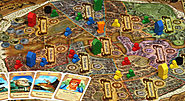
Intensities journal addresses all aspects of cult media including cult television, cult film, cult radio, cult comics, literary cults and cult authors, new media cults, cult figures and celebrities, cult icons, musical cults, cult geographies, historical studies of media cults and their fandoms, cult genres (e.g. science fiction, horror, fantasy, pulp fiction, Manga, anime, Hong Kong film etc.), non-generic modes of cultishness, theorisations of cult media, relevant audience and readership studies, and work that addresses the cult media industry.
In addition to publishing refereed essays (of between 6000 and 8000 words), Intensities also features a non-refereed Cult Media Review section which will carry shorter speculative reviews, reviews of cult phenomena (e.g. cult TV series, cult films, cult novels, science fiction, comics), short critical essays, interview transcripts, conference and convention reviews and articles about aspects of industry, fan culture, production and authorship.

Dr Jodie Taylor is a Senior Lecturer, Postgraduate Supervisor and Curriculum Designer. Through the lens of critical pedagogy, Jodie’s praxis-orientated approach to education is guided by the desire to help students become aesthetically inspired, media literate, culturally sensitive, critical and creative thinkers.
She is the author of Playing it Queer: Popular Music, Identity & Queer World-making (Peter Lang 2012), and co-author of Redefining Mainstream Popular Music (Routledge 2013) and The Festivalisation of Culture (Ashgate 2014). She has published more than 30 scholarly articles & chapters on popular music, gender, sexuality and ageing; queer theory, youth culture and subcultural style; and ethical relations in ethnographic fieldwork.